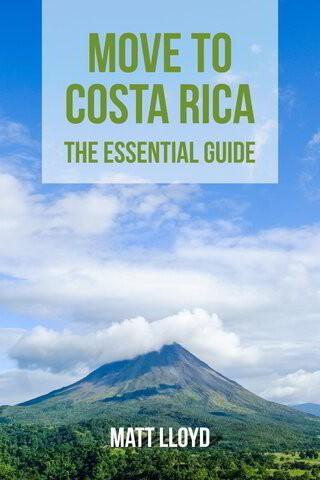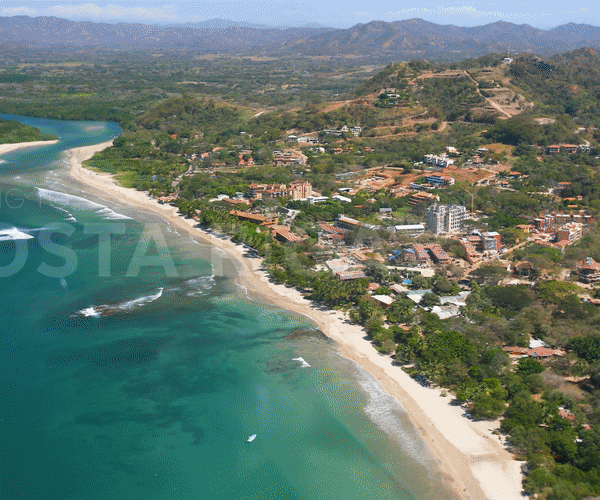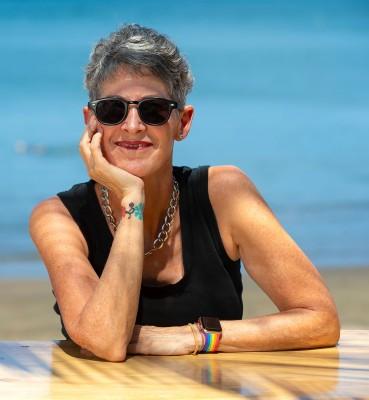Welcome back to the second part of our series on the top 10 questions asked about Costa Rica!
In the first part, we explored essential topics like cultural differences, safety concerns, the educational system, finding a job or starting a business, and some of the best places to live.
In part two, we'll continue addressing the five frequently asked questions about living in this beautiful country. Let's dive right in!
5) Can I buy property in Costa Rica as a foreigner?
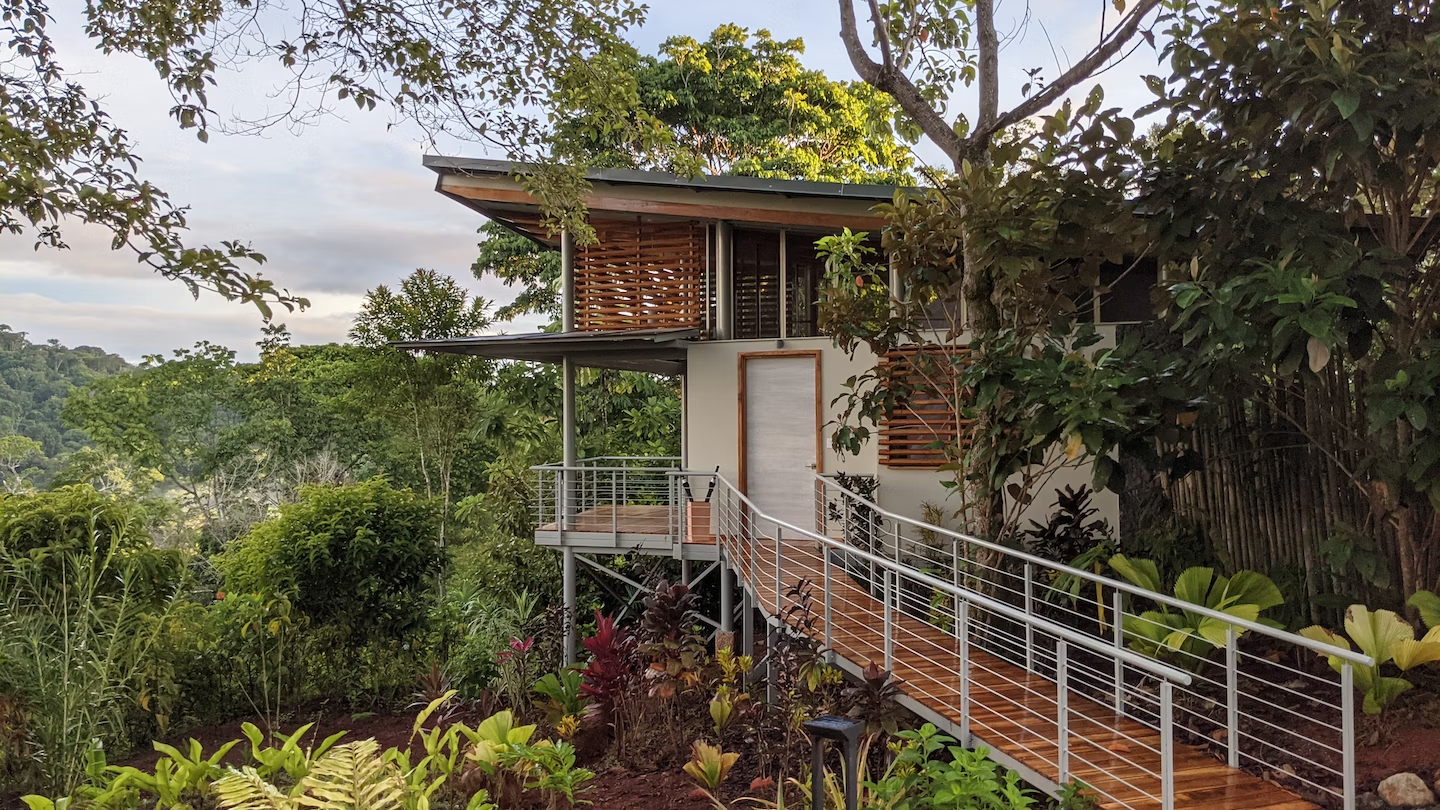
As a foreigner, you can purchase property in Costa Rica with the same rights and protections as Costa Rican citizens. The country's property laws are favorable to foreign investors, making it relatively straightforward to own real estate.
However, working with a reputable real estate agent and a qualified attorney is essential to navigate the legal processes and ensure the property has a clean title. Conducting due diligence is crucial to avoid pitfalls and ensure smooth transactions.
Understanding the different regions and microclimates will help you choose the perfect location that aligns with your lifestyle preferences.
Understanding the different regions and microclimates will help you choose the perfect location that aligns with your lifestyle preferences.
*NOTE — We bought our property using a realtor who referred to us and an attorney who watched out for our interests throughout the process.
.
4) What are the visa requirements for moving to Costa Rica?
Before packing your bags, it's crucial to understand Costa Rica's visa requirements. The country offers various visa options, including:
• The Pensionado (Pensioner) Visa, which is designed for retirees,
• The Rentista (Rent) Visa is for those who can show a steady monthly income and
• The Inversionista (Investor) Visa is for those who invest USD 150,000 in a business or property.
There are also tourist, business, and student visas available. Researching the specific requirements for each visa type and considering consulting with a legal expert or the Costa Rican embassy for personalized guidance is essential.
It’s essential to have someone, a Tico, who understands the laws and constitution (two separate and fundamental aspects of the rules in Costa Rica) to help you through any legal process.
Some people try to avoid this kind of help to save a dollar, and it rarely turns out well. It usually costs more money and time to go through the process alone.
Some people try to avoid this kind of help to save a dollar, and it rarely turns out well. It usually costs more money and time to go through the process alone.
3) How is the cost of living in Costa Rica compared to my home country?
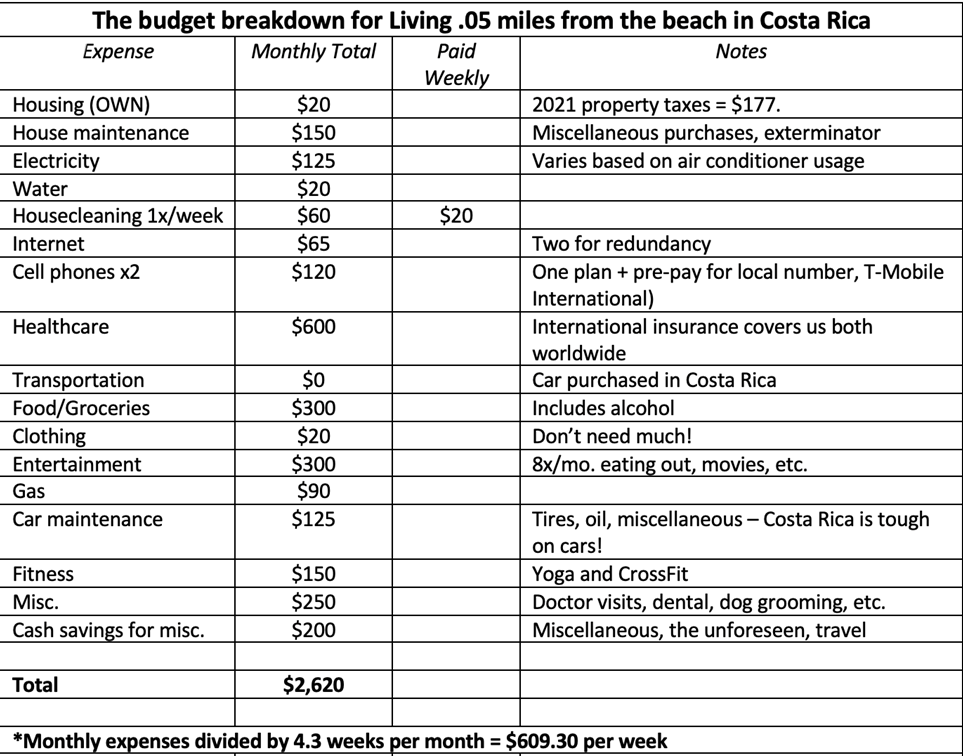
The cost of living in Costa Rica can vary depending on your chosen region and lifestyle. While some areas, such as the capital city of San Jose and popular coastal towns, tend to be more expensive, smaller towns and rural communities offer a more affordable living.
Generally, the cost of living in Costa Rica is lower than in many Western countries, especially regarding healthcare, fresh produce, and transportation. However, imported goods and services may be relatively expensive due to import taxes.
Creating a detailed budget based on your desired lifestyle and location is advisable to determine how the cost of living aligns with your financial means.
*NOTE — We live .5 miles from the beach; this is our real-time budget for 2022. This is an easy 1/3 of the cost for us compared to living in the U.S. You can live on much less than this. It all depends on where you want to live. Living near the beach will always be more expensive.
2) What is the healthcare system like in Costa Rica?
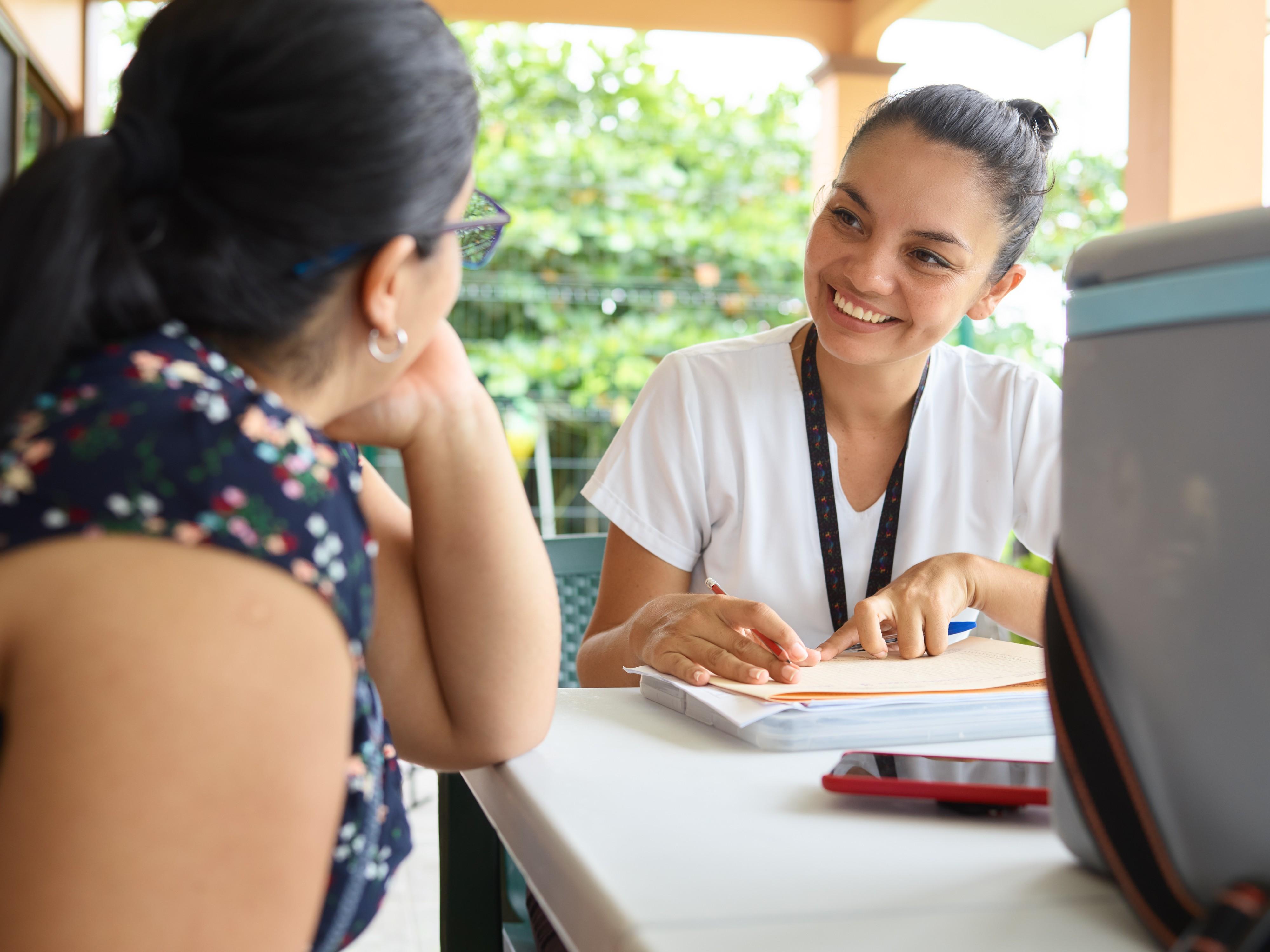
Costa Rica boasts an excellent healthcare system, considered one of the best in Latin America. Both public and private healthcare facilities are available throughout the country, with major cities offering modern hospitals and clinics.
The Costa Rican Social Security System, known as "Caja," provides affordable and accessible healthcare to residents and legal residents paying into the system. Expats can also opt for private health insurance, which offers a broader range of services and shorter appointment wait times.
To join the public Caja system, you must be a resident of Costa Rica. Your payment into Caja will be a percentage of your monthly income. We will discuss this exact topic in a future blog.
*NOTE — We are not residents of Costa Rica…yet. We pay for private international insurance. For both of us, our monthly cost is $700, which covers catastrophic issues. We have a $ 1,000 deductible in Costa Rica and a $5,000 deductible anywhere else in the world. This is a reasonable price compared to what we were paying in the U.S.
We also participate in MediSmart, a medical supplement plan that offers discounts on regular checkups, doctor visits, prescriptions, etc.
To date, we are delighted with the care we have received. The doctors take their time with you, provide valuable information, and have solved any ailment we’ve had.
1) Is Costa Rica a good place to live?
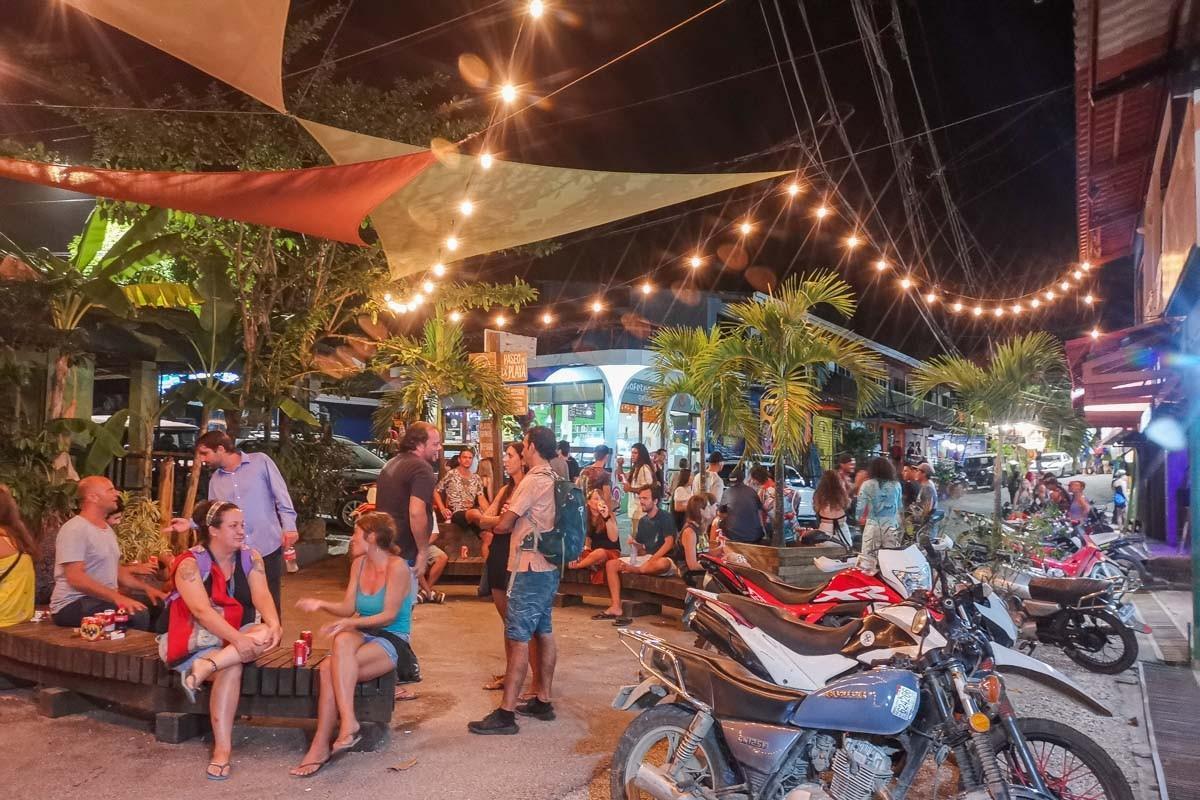
Costa Rica offers diverse environments, each with its unique charm. Some of the most popular areas for ex-pats include:
Costa Rica is consistently ranked among the best places to live for expats and retirees and for good reasons. For example, the World Happiness Index 2022 lists Costa Rica at #23 with a score of 6.582/10.
The country boasts a stable democratic government, high safety compared to other Latin countries, and a welcoming local community. Costa Rica is committed to environmental sustainability and offers a tranquil, eco-friendly atmosphere.
The "Pura Vida" lifestyle, which translates to "Pure Life," promotes a stress-free and relaxed way of living, focusing on enjoying life's simple pleasures. Moreover, the country's excellent healthcare system and beautiful landscapes make it an appealing destination for those seeking an improved quality of life.
As an ex-pat living here, the Pura Vida style agrees with me. I live with less stress and the stress I feel (because I’m human 😉) is easier to manage. I am no longer concerned with what I have, whether I’m keeping up, buying things, etc.
A Final Thought
As we conclude the second part of our series on the top 10 questions about Costa Rica, we hope you received help thinking about the crucial aspects of moving to this beautiful and vibrant country.
From choosing the best places to live, finding job opportunities, navigating the education system, ensuring safety, and embracing cultural differences, Costa Rica offers a fulfilling and enriching experience for those who call it home.
Whether you seek a tranquil retirement or a new adventure, Costa Rica's Pura Vida lifestyle awaits you with open arms.
Pura Vida! 🌺

